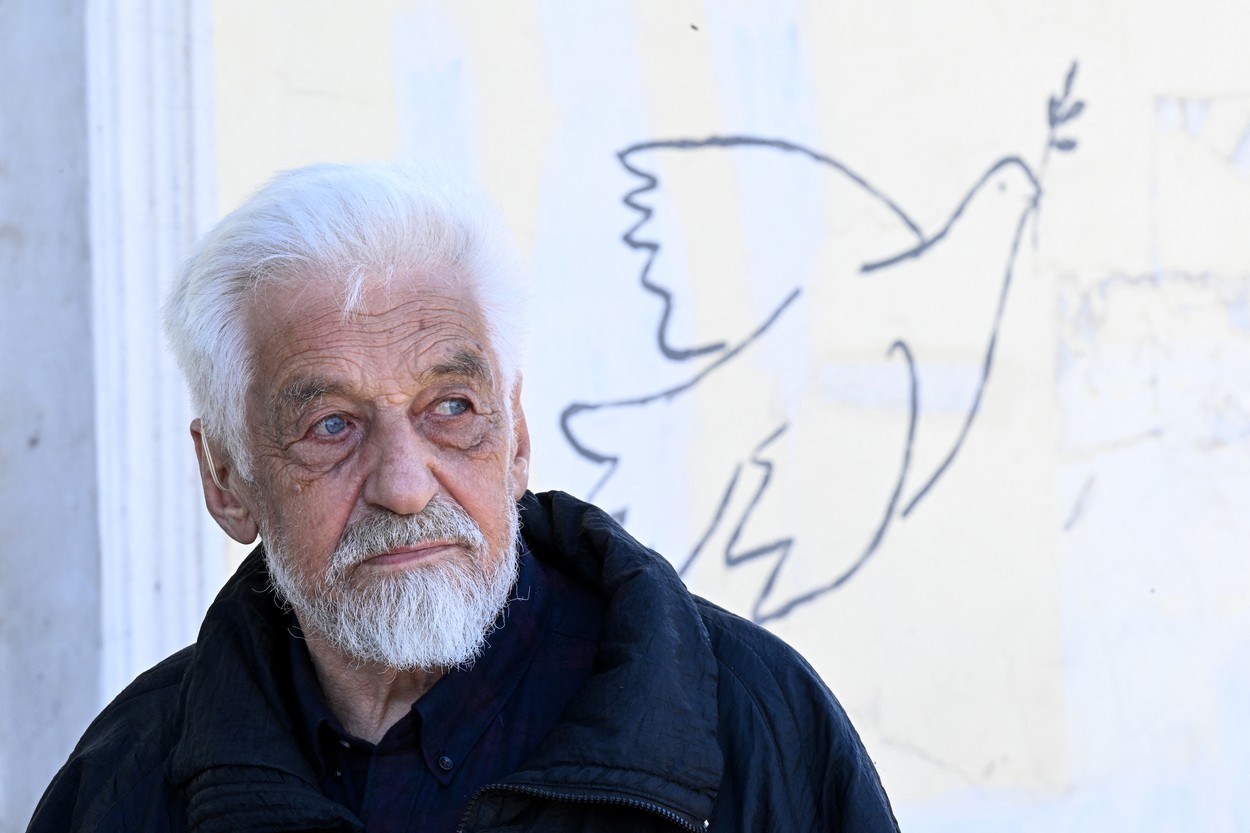
For 20 years, Russian pensioner Volodymyr Ovchinnikov has become very popular for his murals in the small town of Borovsk, located 115 km southwest of Moscow, many of which depict the plight of victims of Stalin’s repression Reuters.
But on March 25, a month after Russia sent tens of thousands of troops into Ukraine, Ovchinnikov created a new job that put him in serious legal jeopardy.
He painted a girl in the blue and yellow colors of the Ukrainian flag, with bombs falling on her. “STOP” is written in block letters under the little girl.
84-year-old Volodymyr Ovchinnikov has been painting for rent in Bobrovsk for 20 years. Jeho malby byly apolitické, until 24. února. Jeho druša byla tahle⬇️a čerce jim there přidalo jako diskreditace ruské armády, dostal 30,000 rubles in fine. People did not agree with us. pic.twitter.com/p8ghKCtDpb
— Roman M (@Fbeyeee) May 18, 2022
The mural contradicted new laws passed by the Russian government that effectively criminalize opposition to the military campaign in Ukraine.
“The police said that this work discredits our army,” 84-year-old Ovchinnikov told Reuters.
The mural was closed and Ovchinnikov was ordered to pay a fine of 35,000 rubles, the equivalent of $554, for the new crime of “defamation of the Russian military,” which carries a maximum penalty of five years in prison.

Artist Volodymyr Ovchinnikov, 84 years old, in front of one of his works in Borovsk (Photo source: AFP / AFP / Profimedia)
The police also covered the piece “Insanity”
In response, he wrote a new piece, writing the word “madness,” which translates from Russian as “madness,” to the Latin letter Z, which has become a symbol of what Moscow calls a “special forces operation” in Ukraine. The police immediately painted over the mural.
The pensioner’s work provoked a cat-and-mouse game between Ovchynnikov and the police in Borovsk, population 12,000.
Instead of a mural, he painted the words “pozor” (shame), “fiasco” and “basta” (enough), each with the Latin letter Z. All of them were covered by the police.
The period of repression during the times of the USSR
For Ovchinnikov, his opposition to the conflict in Ukraine is based on his family’s experience of Soviet-era repression.
His grandfather was shot by Lenin’s Bolsheviks in 1919, and his father was arrested during Stalin’s purges in 1937.
The Russian artist drew attention to the history of political repression in Russia as a motive for his art. In 2017, he persuaded local authorities to erect a monument to his victims – a stone taken from the Solovetsky Islands in the far north of Russia, the site of the first Gulag camp, Stalin’s vast network of camps.
“This topic of political repression and the closure of this topic, the erasure of historical memory is one and the same with what is happening in Ukraine,” said Ovchinnikov.
Follow the latest events of the 294th day of the war in Ukraine LIVETEXT on HOTNEWS.RO
Source: Hot News
James Springer is a renowned author and opinion writer, known for his bold and thought-provoking articles on a wide range of topics. He currently works as a writer at 247 news reel, where he uses his unique voice and sharp wit to offer fresh perspectives on current events. His articles are widely read and shared and has earned him a reputation as a talented and insightful writer.